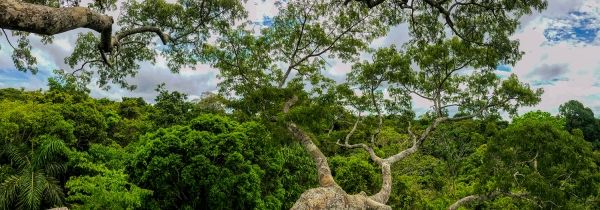This policy focus is suggested by a new University California of San Diego study published in the Proceedings of the National Academy of Sciences.
Led by UC San Diego political science researcher Kathryn Baragwanath, the study uses an innovative method to combine satellite data of vegetation coverage in the Amazon rainforest, between 1982 and 2016, with Brazilian government records of indigenous property rights. The study found significantly reduced deforestation rates in territories that are owned fully and collectively by local tribes – when compared to territories that are owned only partially by the tribes or not at all. The average effect was a 66% reduction in deforestation.
The Amazon accounts for half of the Earth’s remaining tropical forest, is an important source of the biodiversity on our planet and plays a major role in climate and water cycles around the world. Yet the Amazon basin is losing trees at an alarming rate, with particularly high levels in recent years, due to a combination of massive forest fires and illegal activities.
Continue reading at University of California San Diego
Image via University of California San Diego


